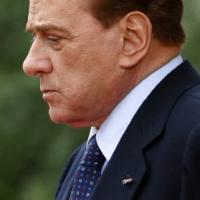
Second major defeat for beleaguered government
Losses in the May local elections were a serious personal and political blow to Italian Prime Minister, Berlusconi. Now he has suffered a second important defeat, this time in a national referendum. This may not represent the decisive knockout blow, but he and his government are definitely on the ropes, bruised, battered and flaying around helplessly.
This was a spectacular result. For the first time in 16 years the quorum of at least a 50% turnout was reached in a national referendum. 57% of Italians turned out and around 95% of those voted ‘yes’ to scrapping nuclear power, to stopping the privatisation of public services (in particular water) and to repealing a law allowing ministers to avoid appearing in court cases. There was little information about the referendum on the TV and the government (sensing defeat) tried to play down its significance saying that voting was ‘useless’. The ‘no’ campaign told everyone to go to the beach rather than to the polling stations.
Of course many people were motivated to vote by the issues at stake. Nuclear power has always been a very sensitive issue in Italy. Back in 1986, Italians voted in another referendum against the building of nuclear power stations on Italian soil. Berlusconi thought that 25 years later public opinion could be won over to backing nuclear energy, but then Fukushima changed everything. It was inevitable that with that disaster fresh in everyone’s minds there would be a massive anti-nuclear vote. But at the same time, there’s no doubt that many people were also motivated by the opportunity to give Berlusconi yet another bloody nose.
Government cracks widening
Even before this latest defeat huge fissures were opening up in the governing coalition. The Northern League (Ln) did badly in the local elections, even losing control of a stronghold in the north which had been a test bed for its anti islamic and right-wing populist policies on ‘law and order’ (banning of the burka in public, limits on ‘ethnic’ restaurants, restrictions on gathering in public places etc). Massive unrest, particularity at the party’s base in local areas of the north, has led to vociferous calls to break with Berlusconi. Maroni, the interior minister, reflected this mood when, after the referendum results were declared, he said that ‘getting a good slapping’ could not become a ‘habit’. However the Ln leadership is reluctant to trigger a fall in the government as it did in 1994, as it is desperate for the passing of a law on federalism which it hopes will shore up its base and electoral support. But pressure is mounting and divorce, although not the most likely outcome, cannot be completely ruled out.
For the time being the Northern League is demagogically calling for an end to military engagements in Libya and Afghanistan and for the money to be used to cut taxes. The Pdl, Berlusconi’s own party, is also divided between those (led by himself) who want to go down the populist route of ‘buying’ votes by cutting taxes and those (headed by the finance minister, and possible successor to Berlusconi, Tremonti) who argue for continued ‘austerity’ to keep the financial markets happy and to avoid ‘Greece coming to Italy’.
Fragmented opposition
The current government will probably continue in place but racked by crisis and virtual paralysis. The opposition Pd (Democratic Party) is itself divided and ineffective and has not really benefited electorally from Berlusconi’s growing unpopularity. Although the Pd won Milan in the local elections, the candidate was not of the leadership’s choosing, and in Naples (the other significant loss for the government) the winning candidate was from the populist Party of Italian Values (Idv), also the main promoter of the referendum. The ‘radical left’ vote is fragmented, with some going towards populist parties like the Idv and the 5 Star movement of comedian Beppe Grillo, some to Nicchi Vendola’s Sel (a right-wing split from the Party of Communist Refoundation [Prc]), while the traditional radical left parties Prc and Pdci (under the banner of Left Federation) have virtually fallen off the electoral radar in most areas.

Industrial and social struggles are also fragmented. On 6 May, the main trade union, the CGIL, called its third general strike against this government’s policies but it was the usual story of let out the anger for a few hours and then going back home with no strategy for coordinating and continuing the struggle. Nevertheless, workers at the government owned Fincantieri shipyards won an important victory when their struggle forced the company to withdraw its plan to close sites and make thousands of workers redundant. The NO TAV environmental struggle in Val di Susa (a mass local movement against a proposed high speed rail link) is also reaching a critical phase where European money could be lost unless work on the link starts now. But protestors are standing firm and are determined to stop this from happening despite government and state repression. Some government ministers have even called for the area to be militarised to try and break the movement. Controcorrente (CWI Italy) members have played an important role in the development of both of these struggles whilst also campaigning for the building of a new left party, based on the workers and youth moving into action in current and future battles..

Be the first to comment